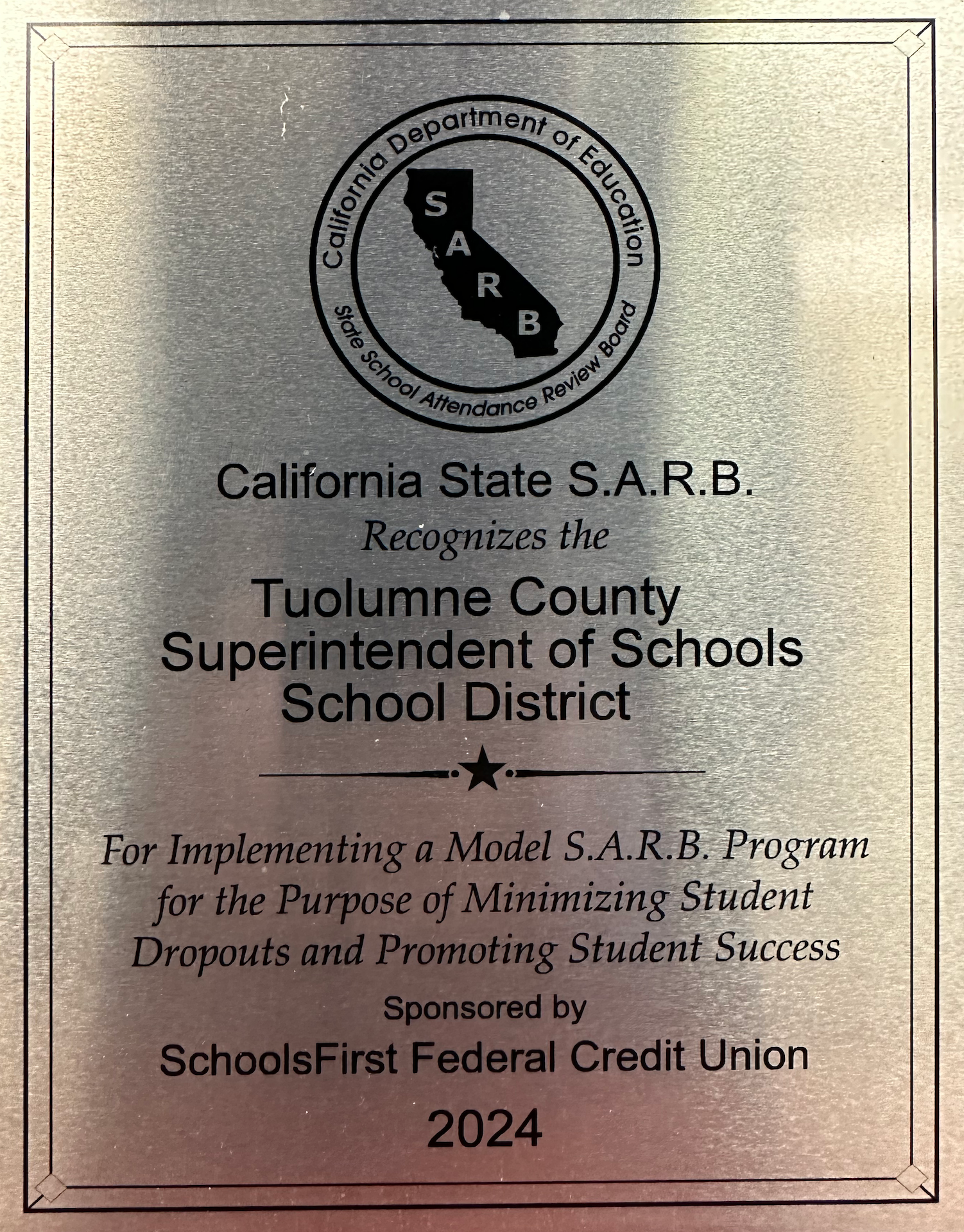School Attendance Review Board (SARB)
What Happens
When A Truancy is Reported
School-Level Interventions
The school must: (1) report the truant pupil to the district’s attendance supervisor, (2) notify the parent or guardian that the pupil is truant, and (3) provide the pupil and parent with certain interventions—such as providing the pupil with counseling and tutoring and requiring the parent to attend a parenting class.
District-Level Interventions
If the school-level interventions are unsuccessful, the school district will refer the student and the parent to the district’s SARB or, if the district does not have a standing SARB, to the county office of education’s (COE) SARB. In either case, the SARB is composed of parents, representatives from the school district, and members of the community at large—including representatives from law enforcement, welfare and mental health agencies, youth services agencies, and the district attorney’s office. The SARB members work collaboratively to diagnose the problem and recommend solutions to overcome the specific circumstances that are contributing to truancy. If parents refuse to respond to SARB directives, the SARB may refer the case to the district attorney for legal interventions. Alternatively, school districts may bypass the district attorney’s office entirely and file against offenders in traffic court.
County and Court Interventions
In addition to a SARB, most COEs operate formal truancy mediation programs in coordination with the district attorney and/or county probation offices. A SARB may refer cases to these programs as a last intervention before the pupil or parent faces legal prosecution. Typically, it is only in the most egregious cases where these efforts are unsuccessful and legal action is subsequently pursued by the district attorney. When legal action is needed, district attorneys have three options they may use to prosecute offenders. As described in Figure 1, the penalties associated with these options vary in severity—ranging from community service or participation in a parent education program to one year in jail and a $2,000 fine.
In May 2024, State Superintendent Tony Thurmond announced that the Tuolumne County Superintendent Schools Office had again been recognized as a Model School Attendance Review Board (SARB) program. The only County Office of Education to receive this prestigious award in 2024!
SARB
Board Members
2025-2026
SARB Hearing Dates
2025-2026 SARB Hearing Dates
Updated June 2025
The SARB Board will meet at 8:00 AM, and the first case will start promptly at 8:15 AM. There will be two SARB Hearings in September and in May. The SARB team will share location details at a later date.
Thank you for your time and energy in helping our students get back to school and receive the services they need.
- September 20, 2025
- September 24, 2025
- October 8, 2025
- November 12, 2025
- December 10, 2025
- January 14, 2026
- February 11, 2026
- March 11, 2026
- April 8, 2026
- May 13, 2026
- May 20, 2026
SARB
Forms & Resources
REFERRALS
SARB Referral Checklist
Updated July 2024
Confidential Referral Form
Updated July 2024
School Notification of SARB Referral
Updated January 2023
INFORMATION
SARB Information Pamphlet
Updated January 2023
RESOURCES
Teacher/Counselor Input Form
Updated July 2024
SARB Case Chronology Worksheet
Updated July 2024
Attendance Works
Resources
PRESCHOOL & KINDERGARTEN
Get Ready for one the biggest adventures of your child's life!
School will be starting soon. These tips can help your children look forward to attending school every day.
Help Your Child Succeed in Preschool and Kindergarten
Build the Habit of Good Attendance
ELEMENTARY
Help Your Child Succeed in School
Build the Habit of Good Attendance Early
Attendance in the Early Grades
Many of our youngest students miss 10 percent of the school year—about 18 days a year or just two days every month. Chronic absenteeism in kindergarten, and even pre-K, can predict lower test scores, poor attendance, and retention in later grades, especially if the problem persists for more than a year. Do you know how many young children are chronically absent in your school or community?
Asistencia en los Primeros Grados
Muchos de nuestros estudiantes más pequeños faltan a la escuela el 10% del año escolar – como 18 días al año o sólo dos días al mes. La ausencia crónica en kínder e incluso en la pre escuela, puede predecir bajas calificaciones en exámenes, mala asistencia escolar y baja retención en los próximos años escolares, especialmente si el problema de ausencia persiste durante más de un año. ¿Sabe usted cuántos niños pequeños están ausentes crónicamente en su escuela y comunidad?
MIDDLE & HIGH SCHOOL
Keep Your Child On Track in Middle and High School: Pay Attention to Attendance
Showing up for school has a huge impact on a student’s academic success. Even as children grow older and more independent, families play a key role in making sure students get to school every day and understand why attendance is so important for success in school and on the job.
HEALTHY PRACTICES
Keep Your Child Healthy and in School
A regular attendance routine is important for your child’s well-being, learning, and long-term success. Below are tips to keep your child healthy and avoid unnecessary absences from school.
Health Guidance for Going to School
Showing up to school every day is critical for children’s well-being, engagement, and learning.
